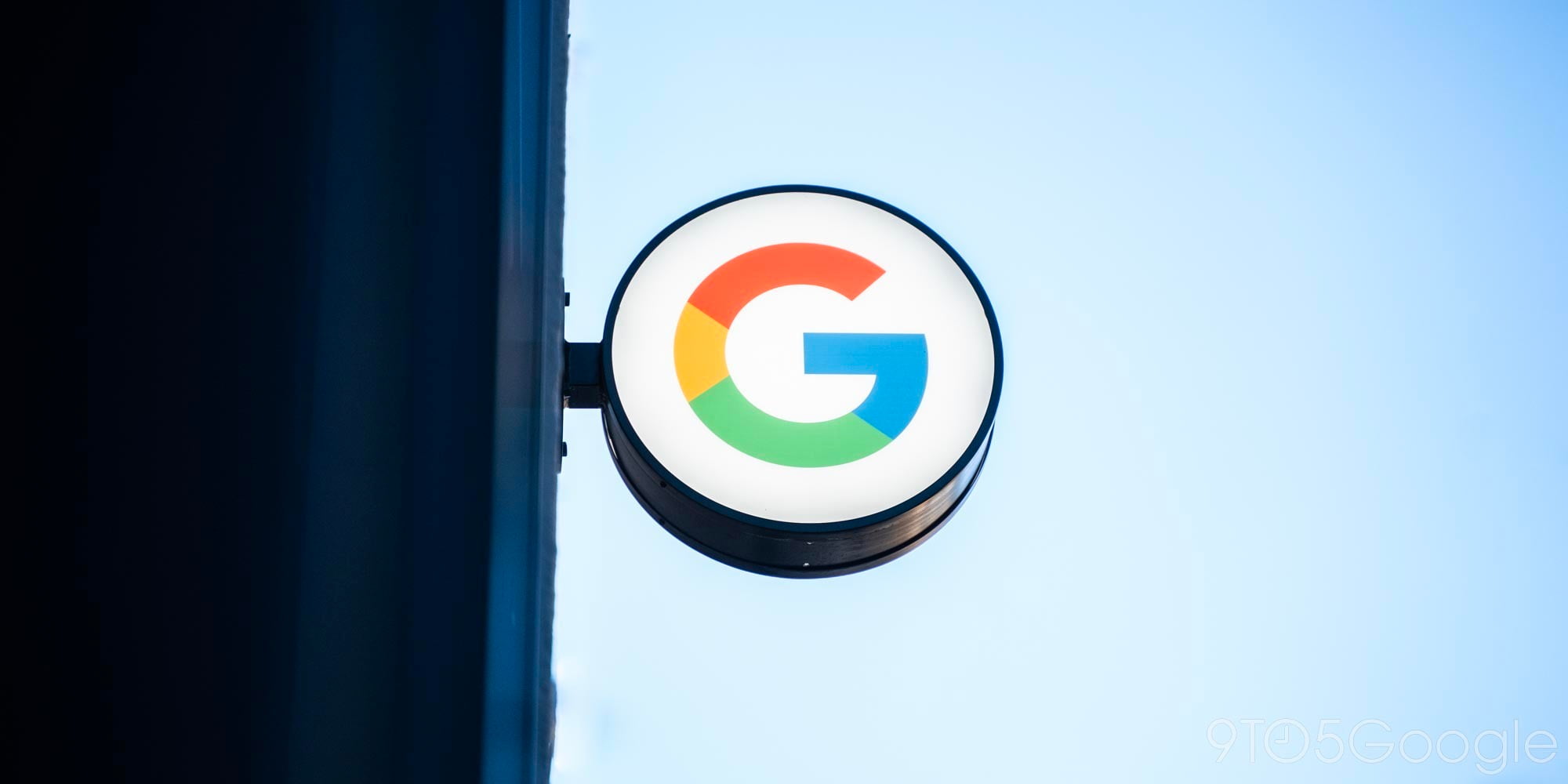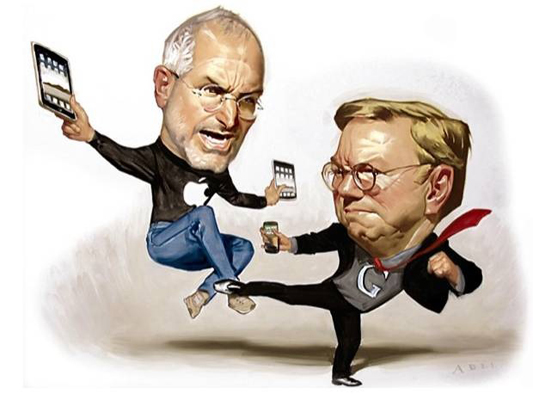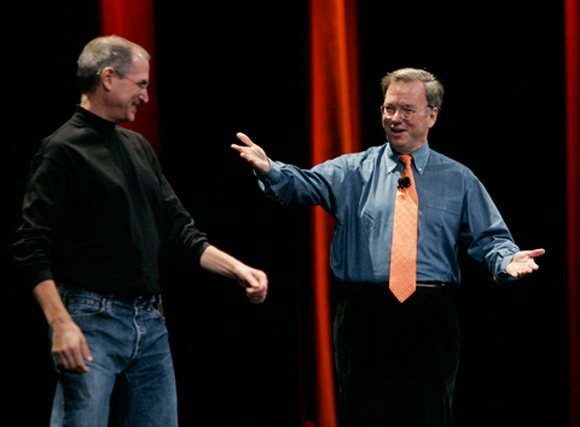Eric Schmidt


[youtube=http://www.youtube.com/watch?v=fEfzwsPRk2k&feature=youtube_gdata]
One Wall Street analyst is calling into question Google’s co-founder, Larry Page, and his health, due to the executive’s notable absence from the company shareholders’ meeting on Thursday.
Google Executive Chairman Eric Schmidt, who bequeathed his CEO title to Page in April 2011, told shareholders that the chief executive “lost his voice.” Schmidt further revealed Page would not attend the Google I/O developer conference next week or Google’s Q2 earnings call next month (as seen in the video above). Page will, however, maintain his post duties and continue an active role at Google while his voice recuperates over the next few weeks.
According to Canada.com, a Google representative explained that Page was “asked to rest.” No more information on the CEO’s mysterious voice condition is available at this time, but JP Morgan analyst Doug Anmuth debated Google’s excuse for Page in a note to investors today:

A European Union commissioner chief just gave Google “a matter of weeks” to settle allegations of competition-restricting activity that could help the search engine escape hefty fines and formal charges.
 Joaquin Almunia, the European Union’s vice president of the European commission responsible for competition, announced today that he sent a letter to Google’s chairperson Eric Schmidt. The letter detailed the findings of an antitrust investigation into Google’s search practices, and it offered the search engine a chance to remedy its “abuses” by settling.
Joaquin Almunia, the European Union’s vice president of the European commission responsible for competition, announced today that he sent a letter to Google’s chairperson Eric Schmidt. The letter detailed the findings of an antitrust investigation into Google’s search practices, and it offered the search engine a chance to remedy its “abuses” by settling.
“I have just sent a letter to Eric Schmidt setting out these four points. In this letter, I offer Google the possibility to come up in a matter of weeks with first proposals of remedies to address each of these points,” said Alumnia.
The investigation found four areas, or points, where Google’s practices “may be considered as abuses of dominance,” such as: Google exhibits links to its own vertical search services; Google duplicates content from competing vertical search services; competition-restriction agreements between Google and partners on websites where Google provides search ads; and, restrictions that Google sets to the portability of ad campaigns from AdWords to other competitors’ platforms.


There is a lot of interesting news coming out of the Google v. Oracle Java trial today. Yesterday, former CEO Eric Schmidt gave his testimony to the court, and today Andy Rubin took the stand where he revealed a slide deck with Google’s ambitions to sell 10 million Android tablets during 2011 and other pieces of information related to Android revenue.
On-hand reports from The Verge point us to a few of the more intriguing statements made by Rubin and others today:
Google Phone:
The image above is of the “original Google phone” concept presented to carriers almost two years before Google finally launched the first Android handset, the T-Mobile G1. The images of the device came up in the trial due to references to Java in the designs. A year later, in May 2007, almost a year after iPhone, Google was still designing Android with a physical keyboard in mind—as noted in Android specification documents during the trial.
Android Revenue:
First, we get a close look at Android revenue numbers for the first time. The numbers come from a quarterly report given by Rubin and others in 2010 that show the company expected revenue from Android to reach $278.1 million during the year.
The forecast was based on increasing the roughly 20 million Android phones in the market at the time to 40 million by the end of the year. Google was also expecting to pull in $158.9 million in Android ad revenue and just $3.8 million from its 30 percent cut of app sales. According to the report, Google forecasted bringing in $840.2 million from Android ads and $35.9m from app sales in 2012.
Subsidized unlimited data plans:
Another interesting document that emerged from the trial shows Google suggested to T-Mobile in 2006 that it would give up its finder’s fee commission for new customers in order to provide Android phones with $10 monthly unlimited data plans. Of course, that plan was never carried out, and the original Android T-Mobile G1 launched with the conventional $25+ plans.

The ongoing Oracle v. Google trial is churning up some doozies regarding the history of Android, and this latest one is almost unbelievable: Google projected to sell roughly 10 million Android tablets a year for 2011 and 2012 while seizing a third of the marketshare.
A presentation by former Android Inc. CEO Andy Rubin in July 2010, exhibited during the trial, revealed those hefty figures. Obviously, Google’s view was a little optimistic, especially because the search engine also expected Android tablets to reap $110 million in search revenue for 2011 and $220 million for 2012.
The company’s ballpark figures derived from a then-current Morgan Stanley estimate that placed the tablet market around 46 million units for 2012. Needless to say, Google missed its target. Rubin admitted last February that only 12 million Android tablets sold in the previous two years. Apple, on the other hand, has a stronghold on the market with over 67 million iPads sold, of which 11.8 million moved in Q2 2012 alone.
Today’s two-year-old slide deck is significant, because it unearthed the first-ever Android revenue numbers, as well as early user-interface designs for Android 3.0 Honeycomb.
The gallery of slides is below.

Google’s former CEO Eric Schmidt took the stand at 9 a.m. PST this morning to give his direct testimony during the Oracle v. Google trial, and while the questioning hulked along, the executive’s answers glimmered with cynicism.
Oracle’s counsel immediately showcased a plethora of documents from 2005 and 2006 that seemingly depicted the Internet giant as having prior knowledge about needing Sun software licensing agreements to apply Java in the Android mobile operating system, but the Executive Chairman denied the exhibited emails and presentations and remained steadfast to his defense that he was unaware Google even needed permission to employ the open-source software.
 Oracle, a database software giant based in Redwood City, Calif., sued Google in August 2010, and alleged the Android operating system violated a number of patents and copyrights within Java, which Oracle acquired through Sun Microsystems. Android currently runs on more than 150 million mobile devices. Google, based in Mountain View, Calif., denies the contention.
Oracle, a database software giant based in Redwood City, Calif., sued Google in August 2010, and alleged the Android operating system violated a number of patents and copyrights within Java, which Oracle acquired through Sun Microsystems. Android currently runs on more than 150 million mobile devices. Google, based in Mountain View, Calif., denies the contention.
In today’s court appearance, Oracle is essentially alleging that Schmidt and Google had clear knowledge that they did not have explicit rights to use Java in Android. Meanwhile, many Google officials, including Schmidt, profess otherwise.
[Schmidt’s testimony lasted until 12 p.m. PST—see below for details.]

Google is attending this year’s annual White House Correspondents’ Association dinner, but the movie-making industry is anything but excited about the Internet giant’s presence.
According to The New York Times’ blog, the dinner is a large Hollywood affair equipped with buffets, banquets, and after-parties, where entertainment stars, media moguls, and famed celebrities alike gather to party the night away and mingle with the country’s most powerful politicians.
Google’s Eric Schmidt is a fresh face on this year’s guest list, but many show business executives, still scorned by the defeated antipiracy legislation earlier this year, are perturbed that the executive chairman plans to appear.
The Mountain View, Calif.-based Company’s role in conquering the hotly-debated legislation, coupled with Schmidt’s co-hosted pre-event party with The Hollywood Reporter in Washington on April 27, is just salt on the wound for many media executives.
The Los Angeles Times even noted the party does not “go unnoticed in the community.”

[youtube=http://www.youtube.com/watch?v=4DKLSO8wYzk]
From robots to holographic telepresence, Google’s chairman Eric Schmidt took the time at Mobile World Congress 2012 in Barcelona yesterday to discuss where the Mountain View, Calif.-based Company is in the world and what the future holds in the technology realm.
Google’s Hugo Berro showcases Chrome for Android in the first 10 minutes of the keynote (video is above). The nugget to his presentation is that Chrome is fast, secure, and free.
“People say in Ice Cream Sandwich that we got the UI right, we got it right for the global audience, and you see the benefits when you see Chrome,” contributed Schmidt to Berro’s lecture. Upon the concluding statements about Chrome, Schmidt led the stage with an announcement that he wanted to talk about the state of the world and “the world that we all operate in, because I think getting this right—the stakes are huge.”
Schmidt mentioned the potential for growth among the millions in the world who have never played Angry Birds and “never got into the Android vs. iOS argument,” but he also hypothesized about the future. While claiming technologies like holograms, virtual reality, and self-driving cars will be commonplace “quite soon,” Schmidt described a scenario where one could “dispatch a robot”:
“…you need to go to a conference across the world for work and it’s the same time your favorite artist is playing live, in the future you’ll be able to dispatch a robot… to each venue, allowing you to experience both events… using a 3D screen and a control system”
More information is available below.

Google’s Chairman and former CEO Eric Schmidt plans to sell $1.5 billion in Google stock that he owns, according to a filing with the SEC. Schmidt’s stake in Google is currently 2.8-percent. The prearranged sale of 2.4 million shares of Class A stock will lower his share to 2.1-percent. Google closed at $604.64 per share on Friday. WSJ reported:
Google Inc. Executive Chairman Eric Schmidt is selling stock currently worth about $1.45 billion as part of a trading plan that would cut his ownership stake in the Internet giant to about 2.1% from 2.8%.
As of the end of last year, Schmidt owned 2.8-percent of Google, which equivalates to 9.1 million shares of Class A and Class B stock. At the end of the sale, Schmidt will own 6.7 million shares of stock— or 2.1-percent of Google.

[slideshow]
Google launched a revamped homepage, but it is still in the trial phase and only a limited number of users have access to the new design. Meanwhile, some experts and lawmakers are claiming Google’s recent face lift intends to promote more of the company’s businesses without cluttering the homepage.
The website’s redesign has undergone various changes since its initial debut over a month ago. The current version omits the black menu bar that runs horizontal along the top of the website, and it is now replaced by a gray Google logo. Upon clicking the new graphic, seven services under the search engine appear with an option to view 13 more services.
The core seven services in the trial design are Google Plus, Search, Images, Maps, YouTube, News, Gmail and Documents. The “More” tab below the vertical menu reveals options for Calendar, Translator, Mobile, Books, Music, Offers, Wallet, Shopping, Blogger, Reader, Finance, Photos, and Videos.
Google users can also change the background image of their homepage with the trial design, and they can access iGoogle or their Google Plus notification center and Settings options from the main search page.

Rubin made the announcement through Google Plus (and Twitter) and noted:
…and for those wondering, we count each device only once (ie, we don’t count re-sold devices), and “activations” means you go into a store, buy a device, put it on the network by subscribing to a wireless service.
Google’s latest public figure was just 550,000 devices a day that was noted by Chairman Eric Schmidt in Germany earlier this year and confirmed a few times, most recently at LeWeb last week.
To put it in perspective, 700,000 devices a day is almost 5 million every week, or 21 million a month, or over a mind-boggling 250 million a year.
As a comparison, Apple announced 1 million iPhone 4S’s sold in the first day of sales and topped 4 million in the first week (after some pent up demand and a week of preorders).
The Freight Train continues to roar.
Expand
Expanding
Close

[youtube=http://www.youtube.com/watch?v=RaJgw62intI]
Google’s Eric Schmidt was recently featured in an interview with CNN’s Erin Burnett giving a rare behind-the-scenes look at Google’s second largest World offices in downtown Manhattan. While giving a tour and an exclusive interview, Schmidt explained that one of Google’s strengths is their “lack of direction.”
Schmidt also described the building that holds about 3,000 employees, and he said its staff is split “half and half” into sales/marketing and high quality engineering. He called the office the “world’s best engineering center.” Viewers got a glimpse at the desks of programmers, including some of the Google Docs team, cafeterias, hallways with fake subway grates, meat locker conference rooms, and “huddle rooms” designed to look like New York City apartments.
Viewers also learned some of Schmidt’s views on North Korea, and China’s “horrendous censorship laws”. When asked whether or not “the next Bill Gates or Steve Jobs” would be born in China or the United States, Schmidt responded:

The founders of Google — Larry Page, and Sergey Brin — are offering NASA $33 million to restore their Hangar One. Hangar One was once the building that housed NASA planes, and is currently in really bad shape and needs to be restored to protect the environment. How nice of Google, but there’s a catch. Mercury News reports:
Without a covering, the hangar’s frame and foundation will be exposed to the elements. That’s a problem because there are toxic materials in the soil underneath the hangar that could leach out because of rain exposure, Siegel said. Additionally, the Navy has set up some $12 million worth of scaffolding to remove the hangar’s skin. If supporters are able to put a new covering on the hangar right after that process ends, that scaffolding can be left in place. If not, it will have to be removed and then replaced later at a cost of some $1 million to $2 million more, Siegel said.
The Google founders want to use 2/3 of the NASA hangar to house their 11 jets, one of which is currently being sold. The deal hasn’t yet gone through, and still needs approval from necessary NASA/Navy boards. If approved, the restoration project will begin next summer.
Expand
Expanding
Close

[youtube=http://www.youtube.com/watch?feature=player_embedded&v=t02iJn5Ypio]
Among the important things he talked about was Android and iOS at 41 minutes in.
Expand
Expanding
Close

Silicon Filter grabbed some pertinent quotes from Marissa Mayer’s interview today at LeWeb on Mobile, Local, Social (SoLoMo). We’ll have the video up when it becomes available. Notables:

[youtube=http://www.youtube.com/watch?v=1l4EGstuCzs]
Google’s Eric Schmidt recently took the stage alongside Android Product Management Director, Hugo Barra, at Le Web conference in Paris to talk Ice Cream Sandwich and the future of Android. Most of the interview and demo consisted of showing off some of the new flagship features of Android 4.0 Ice Cream Sandwich like face unlock, but the Google chairman also took some time to talk competition (via Cnet). While noting that Android is now ahead of iPhone by unit volume, price points, and number of vendors, Schmidt shared his thoughts on why he thinks developers will perfer Android to iOS in the near future:
Ultimately, application vendors are driven by volume, and volume is favored by the open approach Google is taking. There are so many manufacturers working to deliver Android phones globally. Whether you like Android or not, you will support that platform, and maybe you’ll even deliver it first.
When asked about iOS apps beating the Android versions of apps to market, he had high hopes that would change with Ice Cream Sandwich:
My prediction is that six months from now you’ll say the opposite.
As for the future of Android:
Expand
Expanding
Close


Google chairman Eric Schmidt is set to face the European competition commission this week to address potential antirust issues concerning their dominant position in the search business, according to a report from The Guardian. The meeting will be held by the commission’s antitrust chief, Joaquin Almunia, following initial talks held in January stemming from complaints by several search companies including Microsoft’s own Ciao.
Almunia is expected to present Google with a 400-page “statement of objections” that documents the commission’s research regarding “allegations that Google Inc has abused a dominant position in online search, in violation of European Union rules”.
The antitrust investigation started as far back as November 30, 2010, after claims from several search related companies including 1PlusV, Euro-Cities, and German organizations representing publishers filed complaints. The complaints themselves range from Google displaying there own services in search results to unfairly using content from publishers.
If Google is found guilty of abusing its dominant position in the market they could face fines up to 10% of the company’s annual turnover in Europe, or be forced to make changes to the way it runs its search business in the region. While some reported that during initial negotiations in January Almunia told Schmidt he would have a chance to offer up a solution, Almunia had this to say late last week about the upcoming meeting:
Expand
Expanding
Close

[youtube=http://www.youtube.com/watch?v=Ka9IwHNvkfU]
Fascinating story from the New York Times:
Sergey Brin, Google’s co-founder, is deeply involved in the lab, said several people with knowledge of it, and came up with the list of ideas along with Larry Page, Google’s other founder, who worked on Google X before becoming chief executive in April; Eric E. Schmidt, its chairman; and other top executives. “Where I spend my time is farther afield projects, which we hope will graduate to important key businesses in the future,” Mr. Brin said recently, though he did not mention Google X.
Expand
Expanding
Close

After their $12 billion acquisition of Motorola Mobility this summer, many critics began to think Google would favor Motorola over other Android vendors. Google has already assured us that they won’t, but today at a meeting with reporters in South Korea, Google’s Chairman Eric Schmidt said that Motorola Mobility will run separately from the rest of the company. Schmidt said:
“In general, with all of our partners, we told them that the Motorola deal will close and we will run it sufficiently and independently, that it will not violate the openness of Android…we’re not going to change in any material way the way we operate.”
The comments of course are to assure other OEMs, like HTC and Samsung, that they won’t be left in the dark after the recent acquisition. Google so far seems to be holding up to their promise, seeing as the Galaxy Nexus is a Samsung device, but time will only tell. (via Reuters)
Eric Schmidt also made comment today that, “Android efforts started before the iPhone efforts.”
[vodpod id=Video.15665143&w=425&h=350&fv=]


According to the Associated Press (via Winnipeg Free Press), Google’s Eric Schmidt attended a press conference during his first visit to South Korea since 2007 on Tuesday where, among other things, he was asked his opinion on Steve Jobs’ claims that Android is a “stolen product”. While calling Jobs a “fantastic human being” and saying he is still “very sad and recovering from the sense of loss”, he had this to say regarding claims that Google ripped off key features of the iPhone for Android:
“I decided not to comment on comments that are written in the book after his death. I don’t think it’s right…Most people would agree that Google is a great innovator, and I would also point out that the Android efforts started before the iPhone efforts. And that’s all I have to say.”
It was revealed prior to the release of the authorized Steve Jobs bio penned by author Walter Isaacson that Jobs shared with Isaacson his opinions on Android’s blatant copying of innovations Apple first debuted in the iPhone. Here’s the full quote from the book:

As you probably know, they Steve Jobs book is now in public hands and there will be lots of coverage. As is also known, Jobs wasn’t a huge fan of Android and Google in general, though he was known to council CEO Larry PAge and cofounder Sergey Brin on more than one occasion. Here are some of Jobs’thoughts on building an iTunes client for Android like they did on Windows:
“We thought about whether we should do a music client for Android. We put iTunes on Windows in order to sell more iPods. But I don’t see an advantage of putting our own music app on Android, except to make Android users happy. And I don’t want to make Android users happy.”
He lumps Google in with the Axis of evil:
“IBM was essentially Microsoft at its worst. They were not a force for innovation; they were a force for evil. They were like ATT or Microsoft or Google is.”
And Jobs’ meeting with Eric Schmidt:
“We spent half the time talking about personal matters, then half the time on his perception that Google had stolen Apple’s user interface designs,” recalled Schmidt. When it came to the latter subject, Jobs did most of the talking. Google had ripped him off, he said in colorful language. “We’ve got you red-handed,” he told Schmidt. “I’m not interested in settling. I don’t want your money. If you offer me $5 billion, I won’t want it. I’ve got plenty of money. I want you to stop using our ideas in Android, that’s all I want.” They resolved nothing.
And then there was the thermonuclear War…
“I will spend my last dying breath if I need to, and I will spend every penny of Apple’s $40 billion in the bank, to right this wrong,” Jobs said. “I’m going to destroy Android, because it’s a stolen product. I’m willing to go thermonuclear war on this.” Jobs used an expletive to describe Android and Google Docs, Google’s Internet-based word processing program.
He did have constructive criticism for Larry Page however:
We talked a lot about focus. And choosing people. How to know who to trust, and how to build a team of lieutenants he can count on. I described the blocking and tackling he would have to do to keep the company from getting flabby or being larded with B players. The main thing I stressed was focus. Figure out what Google wants to be when it grows up. It’s now all over the map. What are the five products you want to focus on? Get rid of the rest, because they’re dragging you down. They’re turning you into Microsoft. They’re causing you to turn out products that are adequate but not great….
I suppose it is better to be hated by Jobs than dismissed (Microsoft).

[youtube=http://www.youtube.com/watch?v=JDl5hb0XbfY&feature=player_embedded]
We already expected Ice Cream Sandwhich, Google’s forthcoming overhaul of Android, to land sometime in the fall thanks to rumors of the Droid Prime landing on Verizon in October. However, a October/November release has now been officially confirmed by Eric Schmidt himself during the Dreamforce conference in San Francisco (video above).
“We have a new operating system, internally known as Ice Cream Sandwich for some reason, which is being released in October/November, which everyone’s really excited about.”
It’s also possible that the rumored Nexus Prime could be landing sometime in or shortly after that timeframe as well. As Android and Me points out, it might even land on Google TV in lieu of a public Honeycomb refresh.
Expand
Expanding
Close

Google has acquired PittPatt, a company focused on facial recognition in photos, reports Wall Street Journal. While the terms of the deal weren’t disclosed, Google will be receiving PittPatt’s brainy employees. PittPatt was founded by three “image analysis” and “pattern recognition” specialists whom have PhD’s from Carnegie Mellon University. PitPatt’s technology could go into a number of products — like Google Goggles or Google+.
Something worth noting is what Google’s Executive Chairman Eric Schmidt had to say at AllThingsD’s D9 conference in May regarding the matter of facial recognition:
Schmidt says he does have some concerns about the limits of technology, including combining face recognition with other technologies. Google, with Goggles, had moved pretty far down that path, but has stopped because of the implications.
“We built that technology and we withheld it,” Schmidt says.
People could use the stuff in a bad way in addition to a very good way.
A spokesperson told WSJ:
We’ve said that we won’t add face recognition to our apps or product features unless we have strong privacy protections in place, and that’s still the case


Google’s Eric Schmidt chats with the Wall Street Journal columnist Walt Mossberg at D9 conference in May 2011. Photo: Asa Mathat | All Things Digital
Interesting comments by Google’s executive chairman and former CEO Eric Schmidt at Google’s Mobile Revolution conference here Tuesday. 9to5Mac, our parent site, already reported how Schmidt bashed Apple for suing Android backers out of – in his view – pure jealousy at Android’s success and what he called “lack of innovation” on Apple’s part. However, Schmidt is “not too worried” about Apple’s patent infringement claim against HTC, but stressed his company will “make sure they don’t lose”. ZDNet follows-up with more noteworthy tidbits concerning Android and Google’s view of the mobile landscape.
Asia will be the next gold mine as Android devices become more affordable to the mass consumer, he said, countering claims by DigiTimes that an ITC ruling favoring Apple in its crusade against HTC had white-box vendors such as Huawei Device and ZTE, two of China’s fastest growing Android-device makers, reconsider Microsoft’s mobile operating system at the expense of Android. Asia is the world’s largest and most populous continent with the population of 3.88 billion people.
Within a decade consumers will enjoy 30 times “cheaper, better, faster” connection speeds on mobile devices. Google’s mobile first approach will prove key:


Google’s executive chairman Eric Schmidt has gone on the offensive and bashed Apple over patent infringement claims the company had filed against high-profile Android backers such HTC and Samsung. In what could be viewed as an effort to sway the public perception, he launched a nasty attack speaking at Google’s Mobile Revolution conference in Tokyo. To Schmidt, Apple’s taking rivals to court sends a strong signal, that of the lack of innovation and jealousy:
The big news in the past year has been the explosion of Google Android handsets and this means our competitors are responding. Because they are not responding with innovation, they’re responding with lawsuits. We have not done anything wrong and these lawsuits are just inspired by our success.
Schmidt re-iterated sales of 135 million Android phones since 2008 and highlighted more than 550,000 daily activations that exclude tablets and non-smartphone devices, which is up from 400,000 a day in May. He said Google will support HTC’s legal battle against Apple’s copyright accusations, but wouldn’t elaborate.
Whether or not Apple’s legal pressure stems from jealousy is up for debate, of course. Cynics might argue Schmidt’s comment draws from nervousness on Google’s part because Android backers are increasingly discovering hidden costs as Microsoft and Apple emerge as holders of patents crucial to Google’s mobile operating system. Apple’s victory over HTC may set what RBC Capital Markets analyst Mike Abramsky painted as a high royalty precedent for Android devices that could further shrink the already slim margins on Android phones.
As if that wasn’t enough, Microsoft is already taking money from five Android vendors for patent protection, including HTC which is said to pay five bucks each time it ships an Android handset and General Dynamics Itronix. Microsoft is also understood to have targeted Samsung, seeking royalties in excess of hundreds of millions of dollars annually. The Cupertino, California-headquartered gadget giant quoted Steve Jobs in a statement announcing the HTC lawsuit March last year:

Then Google CEO Eric Schmidt shares the stage with Steve Jobs at the January 2007 iPhone unveiling. The times of happiness would abruptly come to an end amid Android whispers, culminating with Apple announcing Schmidt’s resignation from its board August 3, 2009.